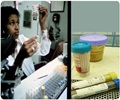- Manipal Manual of Surgery 4th ed
About
Any condition associated with bleeding from the digestive tract could result in passing of blood into stools. The type and amount of blood in the stools depends on the location and cause of bleeding. In this regard, here are some of the terms used to describe blood in stools.
Fecal occult blood: Occult blood is a small amount of blood in stools that is not visible to the naked eye but detected on chemical testing of feces. The bleeding can originate from any part of the digestive tract. Sometimes, the
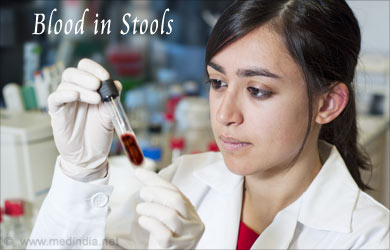
Hematochezia: Hematochezia is the presence of bright red blood in the stools. The blood usually originates from the lower part of the digestive tract.
Melena: This is a condition where the stools appear blackish in color. It occurs when the bleeding is from structures of the upper digestive tract like the esophagus and stomach. The stomach acidity digests the blood, which gives a blackish appearance to the stools.
The presence of blood in stools is usually reported by the patient or detected on stool tests. Physical examination and further tests like endoscopy, colonoscopy, CT scan etc. are often used to diagnose the underlying cause of the bleeding. Treatment depends on the underlying cause. Any associated anemia may also have to be treated depending on the degree of blood loss.
Causes of Hematochezia
Hematochezia usually results from bleeding from structures of the lower digestive tract like the anus, rectum or colon. Some of the causes of hematochezia include:
- Piles or Hemorrhoids: Piles or hemorrhoids are commonly caused due to straining at stool, pregnancy, diarrhea etc. They are dilated veins at the rectum, which results in painless bleeding while passing stools.

- Anal fissure or fistula: Anal fissure is a split in the anal skin. A fistula is an abnormal tract near the anus. Besides minor bleeding, they are accompanied with pain while passing stools and hard stools.
- Diverticulosis: Diverticula are outpouchings of the intestinal mucosa through weak points of the intestine. Bleeding can arise due to a burst of blood vessel in the wall of the diverticulum. It results in painless but significant blood loss. The diverticuli can get inflamed and result in a condition called diverticulitis, which is also often associated with bleeding.
- Colorectal cancer: Cancer of the colon and rectum are serious causes of bleeding from the anus. Therefore, every cause of bleeding through the anus should be investigated thoroughly to rule out a colorectal cancer. Colorectal cancer can be diagnosed with the help of colonoscopy or sigmoidoscopy. Precancerous lesions like polyps may also be associated with bleeding.
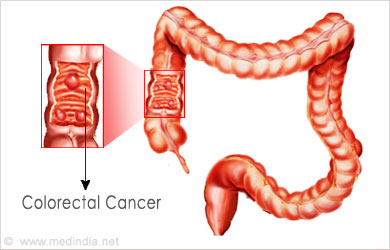
- Intussusception: Intussusception is a condition in which a part of the intestine telescopes into another part. This condition results in obstruction and requires immediate medical attention. It often affects babies who suffer from severe abdominal pain, vomiting and pass stools which are described as red currant jelly stools.
- Inflammatory bowel disease: Crohn’s disease and ulcerative colitis are diseases that cause inflammation of the digestive tract. While ulcerative colitis usually affects the colon, Crohn’s disease affects any part from the mouth to the anus. Beside hematochezia, it may also cause melena.
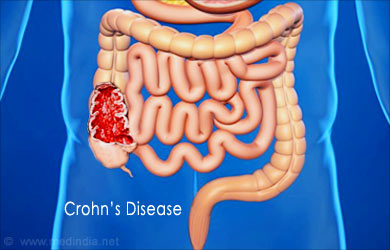
- Ischemic colitis: Ischemic colitis is a condition where there is reduced blood supply to a part of the colon. It is often accompanied by severe pain.
Causes of Melena
Melena is usually caused by conditions affecting the upper digestive tract. Common causes of melena are:
- Peptic ulcer disease: Peptic ulcer disease occurs due to ulcer formation in the stomach or upper intestine. It often causes pain in the upper mid-abdomen. Patients may have a history of taking painkillers on a regular basis.
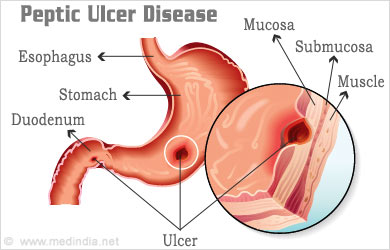
- Stomach cancer: Stomach cancer may result in melena. Other symptoms include weight loss and vomiting. Helicobacter pylori is the most common cause of stomach cancer.
- Esophageal varices: These are dilated veins in the lower part of the esophagus or food pipe. They are commonly caused due to cirrhosis of the liver, a common consequence of alcoholism. The veins often rupture resulting in vomiting of blood; it may also be accompanied by melena.
Other causes of bleeding in stools are:
- Blood disorders: Blood disorders like leukemia and polycythemia may result in blood in stools.
- Infection of the intestine: Severe infection of the intestines including typhoid, tuberculosis, and food poisoning can cause blood in stools. The patient often suffers from pain, fever, diarrhea and sometimes mucus in stools.

- Radiation: Exposure to radiation can also cause inflammation of the intestine, also known as radiation enteritis.
- Food allergy: Food allergy like allergy to milk in infants could result in the passage of small amounts of blood in stools.
- Angiodysplasia: Abnormalities in blood vessels of the intestines can result in bleeding into the stools. These abnormalities include angioma, hemangioma and arteriovenous abnormalities. They are diagnosed using endoscopic methods.
Frequently Asked Questions
1. Which doctor should I visit in case of blood in stools?
You could visit your family doctor or a surgeon to check for the cause of blood in stools. You may be referred to a specialist depending upon the suspected cause.
2. What are the tests used to diagnose the cause of blood in stools?
A carefully taken medical history and thorough physical examination help in diagnosing the cause of blood in stools. Some tests that assist in the diagnosis are:
- Blood tests: These include a complete blood count (CBC) and blood clotting tests
Imaging procedures:
- Sigmoidoscopy and colonoscopy may be performed to visualize inside of the colon.
- Upper endoscopy is done to examine the upper gastrointestinal tract including the esophagus, stomach, duodenum
- X-rays
- Abdominal CT scans.
3. What is fecal occult blood?
Fecal occult blood is the blood in stools that is not visible to naked eyes. Its presence is diagnosed on the basis of chemical testing.

